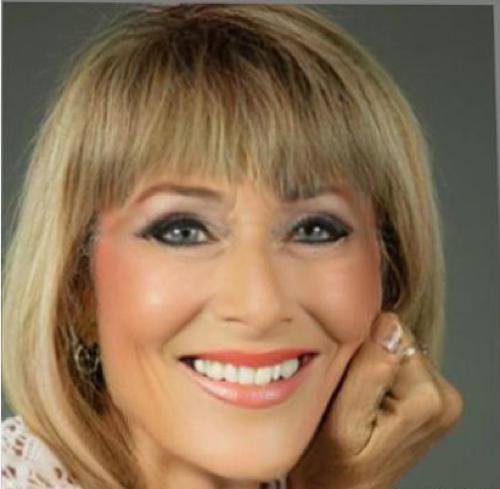Misleading Titles in Newborn Care: The Problem with “Baby Nurse” and “Night Nurse”
In the world of newborn care, proper terminology matters—not only for ethical reasons but also for legal clarity. Many professionals and caregivers unknowingly or intentionally misuse titles such as Baby Nurse and Night Nurse to describe their work, despite lacking the appropriate nursing credentials. Additionally, some individuals use honorary doctorate degrees (e.g., Doctor of Humane Letters) to imply medical expertise when they have no formal training in healthcare. This misleading practice can create confusion for parents seeking qualified caregivers and may even carry legal consequences.
The Problem with “Baby Nurse” and “Night Nurse”
The terms Baby Nurse and Night Nurse have been widely used in the newborn care industry, often to describe professionals who specialize in overnight newborn care. However, these titles are legally and ethically problematic when used by individuals without a registered nursing (RN), licensed practical nursing (LPN), or licensed vocational nursing (LVN) degree.
Why These Terms Are Misleading
- Nurse is a Protected Title – In most states, the word nurse is legally protected and can only be used by individuals who hold an RN, LPN, or LVN license. Using Baby Nurse or Night Nurse without proper credentials can be considered misrepresentation or even illegal in certain jurisdictions.
- Creates a False Sense of Medical Expertise – Parents may assume that someone calling themselves a Baby Nurse has advanced medical training in neonatal care, which can lead to unrealistic expectations or dangerous misunderstandings about the caregiver’s abilities.
- Potential Legal Consequences – Some states have enacted laws to prevent the unauthorized use of medical titles. A caregiver falsely representing themselves as a nurse could face fines or other legal repercussions if reported to state licensing boards.
What Should Professionals Call Themselves Instead?
For those specializing in newborn care but without a nursing license, accurate and legally appropriate titles include:
- Newborn Care Specialist (NCS)
- Postpartum Doula
- Night Newborn Care Specialist
- Infant Sleep Consultant
- Overnight Newborn Caregiver
Using correct titles not only ensures ethical business practices but also helps establish credibility and professionalism in the industry.
The Issue with “Dr.” Titles in Non-Medical Fields
Another common form of title inflation is using the designation Dr. without making it clear that the degree is not medical in nature. Some individuals, for example, may have a Doctor of Humane Letters (DHL) or a Doctor of Education (EdD) and present themselves as Dr. [Last Name] in the field of newborn care, leading parents to assume they are a pediatrician, neonatologist, or another type of medical doctor.
Why This Is a Problem
- Confusion for Parents – Many people assume that Dr. refers to a Doctor of Medicine (MD) or Doctor of Osteopathic Medicine (DO). If a caregiver with a doctorate in an unrelated field uses Dr. without clarification, they may unintentionally mislead clients.
- Potential for Ethical Violations – Even if legally permissible, using Dr. without specifying the degree type can be seen as deceptive marketing, particularly in industries related to health and childcare.
- Loss of Trust – Once families realize that a professional has exaggerated or misrepresented their qualifications, it can damage the credibility of both the individual and the profession as a whole.
How to Use Doctorate Titles Correctly
- If using Dr., always specify the field (e.g., Dr. Jane Smith, EdD or Dr. John Doe, PhD in Child Development).
- Avoid using Dr. in professional settings where it might be confused with medical expertise.
- When listing qualifications, prioritize relevant credentials related to newborn care.
Why Honesty in Titles Matters
Transparency in newborn care is essential for building trust with families. Parents rely on caregivers to provide expert guidance, and misleading titles can cause confusion or even put newborns at risk. Instead of relying on inflated or inaccurate designations, newborn care professionals should focus on their actual skills, training, and experience to gain credibility.
By using appropriate terminology, caregivers uphold the integrity of the industry and ensure that families receive the professional and ethical support they deserve
Posted in: Newborn Techniques, Newborn Care, Unethical Practices

Nancy Hamm cancs, caisc
Founder of Gentle Venture’s Training Center
Contact Ms. Hamm at [email protected] or 602-412-8497
Related Posts
- Companies That Pay for Postpartum Doulas: How to Get Support Covered After Birth💼 Employer-Sponsored Doula Benefits 🏢 Company-Provided Benefits 🏥 Insurance & Managed Care Coverage 🔍 What You Should Do ✅ Summary Type Coverage Fertility/Postpartum Platforms Carrot, Progyny, Maven Corporate Benefits Salesforce, CVS, Microsoft, Trade… Read More »Companies That Pay for Postpartum Doulas: How to Get Support Covered After Birth
- Understanding Your LLC and S CorpWhat’s Better for Your NCS Business: An LLC or an LLC with an S Corp? Explained in a simplified manner. Imagine your Newborn Care Specialist (NCS) business is like a lemonade stand. You… Read More »Understanding Your LLC and S Corp
- What It Really Takes to Work with Carrot Fertility—and How to Qualify for Medi-Cal in CaliforniaWhat It Really Takes to Work with Carrot Fertility — And How to Qualify for Medi-Cal in California As of 2025, Carrot Fertility has updated its standards for doulas. While some of these… Read More »What It Really Takes to Work with Carrot Fertility—and How to Qualify for Medi-Cal in California